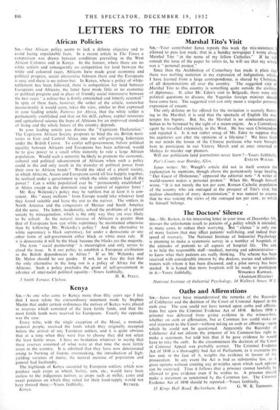Oaths and Affirmations
SIR,—Janus must have misunderstood the remarks of the Recorder of Colchester and the decision of the Court of Criminal Appeal in the oath case The case could not have turned upon oaths and affirma- tions but upon the Criminal Evidence Act of 1898. Before 1898 a prisoner was debarred from giving evidence in the witness-box, whether on oath or affirmation, but at Common law could make an oral statement to the Court—without taking an oath or affirming—upon which he could not be questioned. Apparently the Recorder of Colchester did not inform the prisoner of his Common-law right to make a statement, but told him that if he gave evidence he would have to take the oath. In the circumstances the decision of the Court of Criminal Appeal was probably correct. The Criminal Evidence Act of 1898 is a thoroughly bad Act of Parliament, as it overturns the law and, in the face of it, weights the evidence in favour of the prosecution. In any event the Act is bad as substantive law, as it gives options without creating any principles upon which such options can be exercised. Thus it follows that a prisoner cannot lawfully be allowed to give evidence even if he wishes to. A prisoner should make a statement as sanctioned by the Common law. The Criminal Evidence Act of 1898 should be repealed.—Yours faithfully,


































 Previous page
Previous page